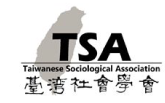場次簡介/ Description:
在現今高度醫療化的社會中,生老病死幾乎與醫療體制緊密相關。近年來,我們開始反思醫療專業介入和醫療選擇,更加重視醫療服務使用者的主體性和福祉,包括由治療(cure)轉向關懷(care),從醫院轉向居家照護,尤其在人臨終之際,我們該如何提供符合個體需求並協同合作的安寧照護。此外,台灣於2018年已正式邁入「高齡社會」,老年人口占總人口的14%,因此高齡照護與臨終照護成為不容忽視的議題。我們不僅需要關注被照顧者的醫療資源使用和完整性,更要考量照顧者的負擔、權利和支援網絡。在本次跨領域的場次中,三位研究者將分享他們對於醫療教育、生命倫理以及安寧制度變遷的見解,試圖為台灣當前重要的醫療議題帶來深入的分析和反思,探討醫療照護中的各類行動邏輯、敘事與實作如何湧現且彼此連結。
主持人/ Chair:郭文華(國立陽明交通大學科技與社會研究所特聘教授)
發表人/ Presenter:盧敬文(童綜合醫院家庭醫學科、清華大學社會學碩士)
題目/ Title:「斷食」真可「善終」?圍繞VSED(自主停止飲食)討論的社會效應
摘要/ Abstract:
近年台灣關於「死亡權」的社會運動,除了安樂死公投連署與尊嚴死立法的倡議,至近期畢柳鶯醫師記錄陪伴罹患小腦萎縮症的母親臨終的《斷食善終》一書出版,透過社群媒體宣傳與類似案例紀錄片面世,掀起一波針對斷食以加速病人死亡的社會討論。「斷食善終」的論述對於社會大眾,尤其是家庭照顧者群體,對於照顧和死亡的看法與實作產生什麼影響?對於不同社會部門―包含安寧療護專業團體、醫療工作者、政府衛生部門等―的影響又為何?本文回顧各國關於VSED(voluntarily stopping eating and drinking)的文獻,於台灣的社群媒體搜尋不同社會部門行動者的回應,整理相關新聞報導,與醫療工作者的回應進行文本分析,並以家庭照顧者和安寧療護專業工作者二方面做初步討論。斷食「善終」本身意涵的模糊,加上由個別案例延伸到普遍性臨床實作的過程,定義不明確導致照顧生命末期或長照個案的醫護人員與家屬之間的溝通落差。社會輿論對「斷食善終」論述的高度興趣,顯示台灣社會對死亡自主權的期待,家庭照顧者無助與自力求生的困境,也突顯提供臨終照顧的安寧療護專業團體與工作者在回應與支援上的力有未逮。
關鍵字:斷食善終、自主停止飲食、加速死亡、死亡權、生命末期
發表人/ Presenter:王安琪(中央研究院社會學研究所博士後研究人員)
題目/Title:組裝與創新的「善終」實踐:台灣安寧的照護體制
摘要/Abstract:
自1990年代多方的行動者所建立安寧照護網絡,確立安寧照護的法條、規範與制度,包括2000年立法通過的《安寧緩和醫療條例》。本研究探討:台灣社會引入國外的安寧照護模式後,如何裝備本土與外來的元素,形成在地的安寧照護體制,並影響在地的規範與實作?探討這個議題有助於我們了解當代死亡與臨終的社會組織特性,以及人們如何創造與維持文化性的理想死亡。本研究欲以生命末期階段的照護體制(care regime)概念,揭露權力如何在死亡與臨終照護實作中施展。本研究採用文本分析方法,分析的主要材料是國際間與台灣主要安寧組織的出版品與安寧照護相關研究論文、政府單位的立法院文書與統計資料。研究初步發現安寧團體透過建立照護網絡,重新建構什麼是文化性適當的死亡。此外,台灣的安寧發展本土性的臨床佛教宗教師,這是其他以佛教為主的東亞、東南亞社會比較少見的案例。台灣醫療專業倡議者策略性地拼裝不同國家制度,或者是採用國際組織的標準。本研究欲想要凸顯台灣安寧照護體制富有在地創意,不是只是照單全收外來的照護模式。
關鍵字:照護體制、組裝、安寧療護、生命末期、善終
發表人/ Presenter:
Yvonne Hsiung (Dept. of Nursing, MacKay Medical College, New Taipei City, Taiwan)
In-Fun Li (Dept. of Nursing, MacKay Memorial Hospital, New Taipei City, Taiwan)
Chia-Tai Hung (Dept. of Nursing, MacKay Memorial Hospital, New Taipei City, Taiwan)
題目/Title: Theory-based Educational Strategies to Cultivate and Prepare Front-line Clinical Nurses in Providing End-of-Life Care
摘要/Abstract:
Introduction/Background
Nurses providing care and support during life-threatening patients’ dying process are anticipated to skillfully initiate advance care planning and facilitate end-of-life (EOL) decision making. However, front-line nurses at the deathbeds, especially those newly graduates, in general report insufficient training to deal with EOL situations. Baccalaureate nursing curricula in Taiwan often fail to offer competency-base education, and since only a few nursing programs offer adequate didactic lectures and/or clinical experiences in qualified hospice institution, there is a lack of theory-based educational strategies to prepare and equip front-line nurses for palliative care, consistent with EOL patients and families’ last wishes.
Purpose
The purpose of this control study is to evaluate effectiveness, from educational strategies based on the Transformative and Experiential Learning Theory, on baccalaureate nursing students’ attitudinal, competence, and self-efficacy in providing palliative care for the EOL patients.
Methods
In this non-equivalent control-group study, a quasi-experimental pretest-posttest design was employed, with a convenience sample of junior students enrolled in a baccalaureate-nursing program from a Northern Taiwan Medical College. A total of 136 participants completed the study in which 47% (n=63) have taken the elective course, and the remaining absent from the class experience were considered as the control group. The effectiveness of the educational intervention in relation to palliative care attitudes, self-report competence, and self-efficacy were assessed; well-accepted measures were administered to the intervention group, both at the beginning and the end of the course, along with a teaching strategy rating tool and the conventional course evaluation required by the college.
Results
Results have shown efficacy of the theory-based educational strategies in attitudinal and competency categories. Baccalaureate junior nursing students were cultivated in their palliative care capability after the transformative learning intervention. Findings drown from this study would inspire nurse educators to reset teaching-learning priorities; palliative care competency could be well-cultivated among nursing undergraduates through creative, appealing, and effective strategies, ultimately benefiting EOL patients and their families.
Conclusion
Responding to the well-received desires of dignified death in Taiwan, an elective course in the baccalaureate nursing program has shown effectiveness to transform nursing students into relatively competent palliative care providers. Findings from this study may shed light on the cultivation of palliative care competency for future educators and educational program developers. There exists an imminent need to increase front-line nurses’ capacity and cultivate baccalaureate-prepared graduates’ palliative care competence in order to meet the national needs in an aging society.
Keywords: Front-line nurses, Theory-based educational strategies, End-of-life care, Palliative care competence, Baccalaureate nursing programs


